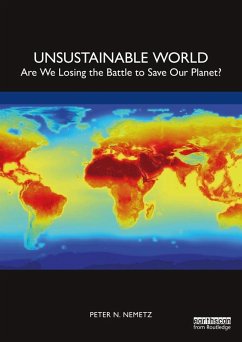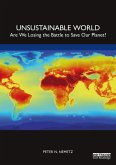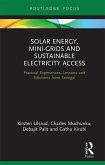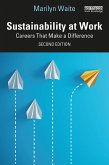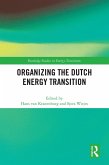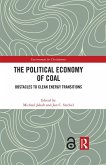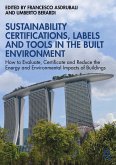Organized into three parts, the book defines sustainability in part I and sets the context of the historical and current difficulties facing the world today. In parts II and III, it outlines the sustainability challenges faced in transportation, manufacturing, and agriculture, and then in turn addresses the solutions, conditional solutions, and nonsolutions to these challenges. These include electric and autonomous automobiles, nuclear power, renewable energy, geoengineering, and carbon capture and storage. The author attempts to differentiate among those proposed solutions and discusses which are most promising and which are infeasible, counterproductive, and potentially a waste of time and money. In each of the book's chapters, the scientific evidence is presented in detail, in keeping with the advice of the young Swedish climate activist, Greta Thunberg, to let the science speak for itself. The author outlines why sustainability is unlikely to be achieved in several key areas of human endeavor and readers are challenged to weigh the scientific evidence for themselves.
Using an economic business-based approach, this book introduces students and general readers to the challenges of sustainability and the environmental difficulties facing humanity today.
Dieser Download kann aus rechtlichen Gründen nur mit Rechnungsadresse in A, B, BG, CY, CZ, D, DK, EW, E, FIN, F, GR, HR, H, IRL, I, LT, L, LR, M, NL, PL, P, R, S, SLO, SK ausgeliefert werden.
Iva Bimpli, Lecturer, University of Leeds, School of Earth and Environment, United Kingdom
"When one is guided by science, the way forward for humankind is not a rosy path-it is a path marred by unnecessary ecological degradation and irresponsible resource draw-down. Peter Nemetz's new work removes some of the varnish that otherwise obscures the precarious vista that humanity now faces. It gives us cause for far deeper reflection regarding our common fate on this planet."
Scott Valentine, Professor of Regenerative Planning and Circular Economy, Director of Research Promotions Office, Kyushu University, Japan
"Using an economic-business-based approach, this book presents the unvarnished scientific facts that describe the dimensions of global ecological change conveying a critical message to humankind: unless drastic action is undertaken to change how economic systems relate to nature, the survival of our way of life in this planet is in serious jeopardy."
Miguel A. Altieri, Professor Emeritus of Agroecology, University of California, Berkeley, USA

